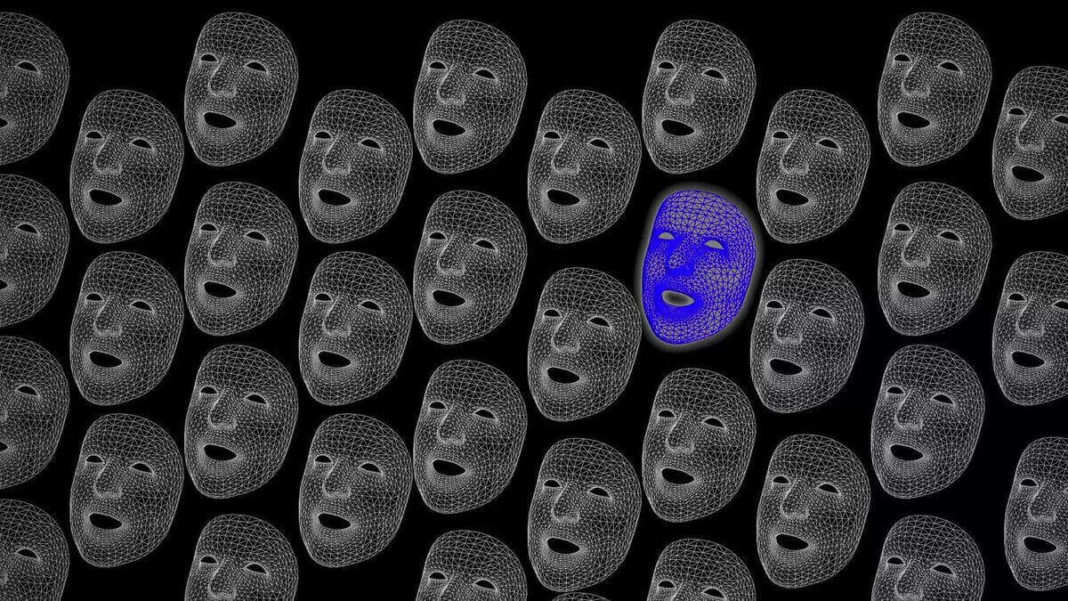In an interview with CBS This Morning, Clearview AI’s founder says it’s his right to collect photos for the facial recognition app.
Google and YouTube have sent a cease-and-desist letter to Clearview AI, the facial recognition company that has been scraping billions of photos off the internet and using it to help more than 600 police departments identify people within seconds.
That follows a similar action by Twitter, which sent Clearview AI a cease-and-desist letter for its data scraping in January. The letter from Google-owned YouTube was first seen by CBS News. (Note: CBS News and CNET share the same parent company, ViacomCBS.)
The CEO of Clearview AI, a controversial and secretive facial recognition startup, is defending his company’s massive database of searchable faces, saying in an interview on CBS This Morning Wednesday that it’s his First Amendment right to collect public photos. He also has compared the practices to what Google does with its search engine.
Facial recognition technology, which proponents argue helps with security and makes your devices more convenient, has drawn scrutiny from lawmakers and advocacy groups. Microsoft, IBM and Amazon, which sells its Rekognition system to law enforcement agencies in the US, have said facial recognition should be regulated by the government, and a few cities, including San Francisco, have banned its use, but there aren’t yet any federal laws addressing the issue.
Facebook has also said that it’s reviewing Clearview AI’s practices and that it would take action if it learns the company is violating its terms of services.
“We have serious concerns with Clearview’s practices, which is why we’ve requested information as part of our ongoing review. How they respond will determine the next steps we take,” a Facebook spokesperson told CBS News on Tuesday.
Clearview AI attracted wide attention in January after The New York Times reported how the company’s app can identify people by comparing their photo to a database of more than 3 billion pictures that Clearview says it’s scraped off social media and other sites. The app is used by hundreds of law enforcement agencies in the US to identify those suspected of criminal activities.
BuzzFeed News reported that in pitches to law enforcement agencies, Clearview AI had told police to “run wild” with its facial recognition, despite saying that it had restrictions to protect privacy.
Critics have called the app a threat to individuals’ civil liberties, but Clearview CEO and founder Hoan Ton-That sees things differently. In an interview with correspondent Errol Barnett on CBS This Morning airing Wednesday, Ton-That compared his company’s widespread collection of people’s photos to Google’s search engine.
“Google can pull in information from all different websites,” Ton-That said. “So if it’s public, you know, and it’s out there, it could be inside Google search engine, it can be inside ours as well.”
Google disagreed with the comparison, calling it misleading and noting several differences between its search engine and Clearview AI. The tech giant argued that Clearview is not a public search engine and gathers data without people’s consent while websites have always been able to request not to be found on Google.
Clearview AI’s founder intends to challenge the cease-and-desist letters from Google and Twitter, arguing that he has a constitutional right to harvest people’s public photos.
“Our legal counsel has reached out to [Twitter] and are handling it accordingly,” Ton-That said. “But there is also a First Amendment right to public information. So the way we have built our system is to only take publicly available information and index it that way.”
Clearview AI would not be the first tech company to use this defense to justify its data scraping practices, as technology attorney Tiffany C.Li pointed out on Twitter. In 2017, HiQ, a data analytics company, sued LinkedIn for the right to continue scraping public data from the Microsoft-owned social network, claiming that the First Amendment protects that access.
The size of the Clearview database dwarfs others in use by law enforcement. The FBI’s own database, which taps passport and driver’s license photos, is one of the largest, with over 641 million images of US citizens. Clearview also keeps all the images collected, even when the original upload has been deleted.
Law enforcement agencies say they’ve used the app to solve crimes ranging from shoplifting to child sexual exploitation to murder. But privacy advocates warn that the app could return false matches to police and that it could also be used by stalkers and others. They’ve also warned that facial recognition technologies in general could be used to conduct mass surveillance.
A lawsuit filed in Illinois after the Times’ report called Clearview AI’s software an “insidious encroachment on an individual’s liberty” and accused the company of violating the privacy rights of residents in that state. The lawsuit followed Democratic Sen. Edward Markey saying Clearview’s app may pose a “chilling” privacy risk.













![Hotstar Premium Cookies 2019 [*100% Working & Daily Updated*] Hotstar Premium Cookies 2019 [*100% Working & Daily Updated*]](https://tahav.com/wp-content/uploads/2019/11/Hotstar-Premium-Cookies-Free-100x70.jpg)



